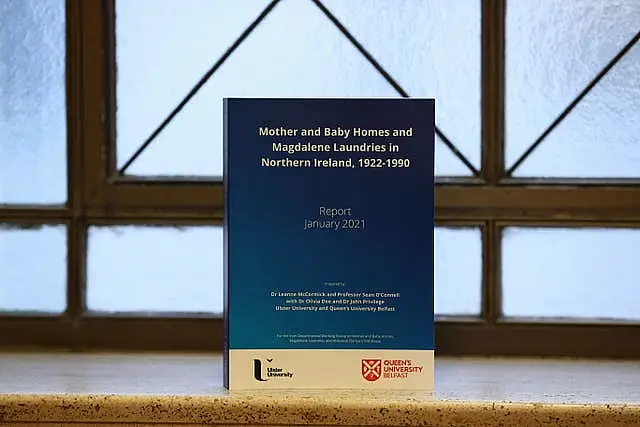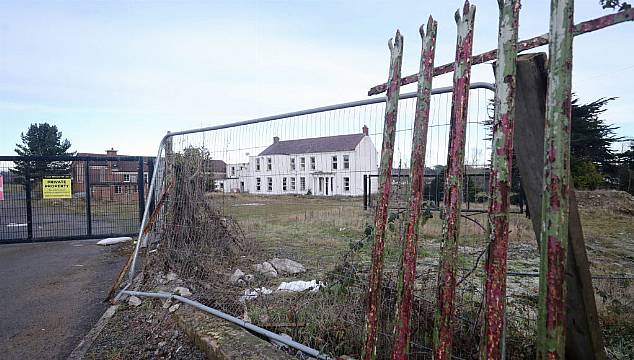More than 100 people have given evidence to a probe into historic mother and baby homes, Magdalen institutions and workhouses.
Research has indicated that more than 14,000 women and teenage girls passed through those institutions in Northern Ireland between 1922 and 1990.
Many were found to have been mistreated, held against their will and forced to give up children for adoption.
In 2021, Stormont was urged to establish a public inquiry to investigate the institutions and deliver financial redress to survivors.

A 10-person panel led by co-chairs Professor Leanne McCormick and Professor Sean O’Connell, is carrying out an independent investigation focused on those affected by the institutions and their pathways and practices.
First Minister Michelle O’Neill and deputy First Minister Emma Little-Pengelly met with the co-chairs to discuss progress on their work to help victims and survivors.
They were told that, to date, more than 100 people have provided testimony to the Panel.
Ms O’Neill urged others to come forward and share their testimony.
“Victims and survivors have waited far too long to have access to the truth, acknowledgement and accountability,” she said.
“We welcome the progress made by the Independent Panel and would encourage more people to come forward and share their testimonies.
“It is vitally important that all victims and survivors have the opportunity to share their experiences, and this process offers a safe and supportive forum for them.
“I want to thank all those people who have come forward and I hope it will make others feel empowered to speak to the panel so that we can shine a light on this dark and shameful period of our past.”
Ms Little-Pengelly added: “The work of the independent panel is so important as it is vital we hear the personal testimonies of those who have been impacted by what happened in these institutions.
“I welcome the fact that over 100 people have shared their experience so far but we know there are others who may be considering making a contribution, which is why we have agreed to extend the timeframe for sharing those experiences by six months.
“It will also allow for the continuation of the panel’s work in relation to the 4,500 archival items identified, working closely with the Public Records Office, ahead of the public inquiry.”
In a statement, the co-chairs of the panel said they have a specialised testimony team, who have been trained to support people in sharing their experiences.
“We encourage all those with knowledge or experience of the institutions or their pathways and practices, to contact our testimony team,” they said.







